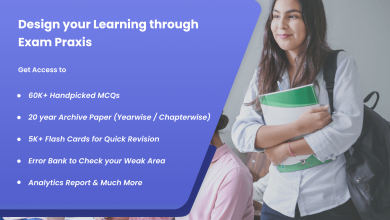Leadership roles in education: Skills and primary duties

Educational leaders are essential figures in teaching institutions who shape the development of students, support staff, and work with parents and families to drive positive outcomes. Leadership positions in education are diverse and encompass roles like principal, department head, and superintendent, all of which come with unique job duties that support schools. Understanding the differences between these positions can help you decide which leadership role you’d like to pursue. In this article, we discuss the role of leadership in education and explore common positions, along with their associated requirements and responsibilities.
The role of leaders in education
Educational leaders serve as role models and mentors for students and play a critical role in ensuring that each student receives a high-quality education. They are responsible for creating a school culture that promotes academic excellence, personal growth, and social responsibility. To accomplish this, educational leaders must develop a comprehensive understanding of each student’s needs, abilities, and learning styles. They must be able to create and implement policies that provide each student with the resources, support, and guidance they need to achieve their full potential.
In addition, educational leaders must be effective communicators who can work collaboratively with teachers, staff, parents, and the wider community. They must be able to inspire and motivate others to work towards a shared vision of academic excellence and social progress. Effective educational leaders must possess strong interpersonal skills, including the ability to listen actively, empathize with others, and respond effectively to feedback. They must also be committed to continuous learning and professional development to stay up to date with the latest educational research and best practices. In short, education leaders are key drivers of educational progress and success, and their leadership is crucial for creating a better future for students and society.
Examples of educational leadership roles
Those torn between an EdD vs PhD would benefit from exploring the various roles available upon completing a practitioner-focused doctorate. An EdD – such as the online one at Rockhurst University – is specifically designed for professionals aspiring to education leadership roles in various fields and is considered a terminal degree in the field of education. Online degrees can allow for flexible study, a variety of courses, networking with students all over the world, and mean that you can continue working and do not have to relocate. It is a highly beneficial way to study, and opens many doors in the industry you wish to work in. Here are some roles it helps you access.
Principal
Principals play a crucial role in the education system as they are responsible for managing the daily operations of a school. Their primary duty is to ensure that the school provides a safe and positive learning environment for students. They are responsible for creating and implementing policies and procedures that promote the well-being of students and their academic success. Principals work closely with teachers, staff, and parents to ensure that the school’s mission and goals align with the needs and expectations of the community.
In addition to creating a safe and positive learning environment, principals are responsible for managing the school’s staff. This includes hiring, training, and evaluating teachers and support staff. They are responsible for creating a culture of professional development that encourages growth and innovation. Principals also oversee the school’s budget, ensuring that resources are allocated efficiently to support teaching and learning. They are responsible for making decisions that are in the best interest of the school and its students while adhering to local, state, and federal regulations. To be successful in this role, principals must have excellent communication, leadership, and organizational skills. They must be able to work collaboratively with diverse stakeholders and make informed decisions that promote the success of the school and its students.
Assistant principal
Assistant principals are key members of the school’s administrative team and work alongside the principal to support the school’s daily operations. They typically manage specific areas of the school, such as discipline, academic programs, or student services. Assistant principals collaborate with teachers, staff, and parents to ensure that students receive the support they need to succeed academically and socially. One of the main responsibilities of assistant principals is to manage discipline. They must be skilled at managing conflicts and have excellent communication and interpersonal skills to work collaboratively with students, teachers, staff, and parents.
Another key responsibility of assistant principals is to oversee academic programs. They work with teachers to ensure that the curriculum is aligned with state standards and that students are meeting academic benchmarks. Assistant principals also help to develop new programs or initiatives to improve student achievement. They are responsible for tracking and analyzing student data to identify areas for improvement and make informed decisions that promote student success. Assistant principals require excellent organizational skills to manage the complex tasks involved in overseeing academic programs and be knowledgeable about the latest research and best practices in education.
Superintendent
The superintendent of a school district has a crucial responsibility in guaranteeing that all students receive an exceptional education. These professionals possess a wealth of experience and expertise in leading and managing the overall operations of the district. Working in close partnership with principals, teachers, parents, and the community, their primary duty is to develop and implement strategies that boost student outcomes and academic accomplishments. To attain this objective, superintendents set clear district goals and priorities and keep track of progress to ensure that objectives are met. Additionally, they are accountable for the efficient and effective utilization of resources to create the best educational experiences possible.
Superintendents also establish and maintain open and effective communication channels with stakeholders. They use their outstanding communication abilities to articulate the district’s vision, mission, and goals in an uncomplicated manner to students, parents, teachers, and community members. Moreover, they cultivate relationships with community organizations, businesses, and other stakeholders to support student learning and development. Superintendents possess vast knowledge of the most recent education trends and best practices, which they use to create effective strategies that meet the diverse needs of students. By shaping the future of their school districts, superintendents ensure that every student receives a top-quality education that prepares them for success.
Assistant superintendent
Assistant superintendents are an integral part of the school district’s leadership team as they work closely with the superintendent to ensure the smooth functioning of the educational system. They oversee and manage specific areas of the school district’s operations and may have expertise in fields such as curriculum development, financial management, or personnel management. In addition to supporting the superintendent, assistant superintendents collaborate with other district administrators and staff to develop and implement policies, programs, and initiatives that align with the district’s goals and objectives.
One of the key roles of assistant superintendents is to manage the curriculum development process. They work closely with teachers, instructional coaches, and curriculum specialists to develop and implement standards-based curricula that meet the needs of students across all grade levels. Assistant superintendents also ensure that the curriculum aligns with state and federal standards and reflects the district’s mission, vision, and goals. Additionally, they are responsible for overseeing the implementation of instructional technology and supporting teachers in the use of digital resources and tools to enhance teaching and learning. As the district’s academic leaders, assistant superintendents play a crucial role in ensuring that students receive a high-quality education that prepares them for success in college and careers.
Department head
These educational leaders play an integral role in overseeing the academic programs of a school. They are responsible for managing and supervising a specific department within the school, such as the English or math department. They work collaboratively with teachers to develop a curriculum and ensure that it aligns with the school’s academic standards and the needs of the students. Department heads must have a deep understanding of their subject area and stay up to date with the latest teaching methods and education technologies.
In addition to buiding curriculum development, department heads are also responsible for providing support and guidance to teachers within their departments. They serve as mentors to teachers, helping them to improve their teaching practices and navigate any challenges they face. Departmental leaders must have strong leadership skills to effectively manage their team of teachers and communicate with other school administrators. They are also responsible for monitoring the progress of students within their department and working with teachers to develop strategies to improve student outcomes.
Curriculum director
Curriculum directors work closely with teachers and other educational leaders to ensure that the curriculum is up to date and reflects current educational practices. They must be familiar with the latest research and educational trends in their field and use this knowledge to continuously improve the curriculum. They also collaborate with other school administrators to ensure that the curriculum aligns with the goals and priorities of the school or district.
In addition to developing the curriculum, these professionals ensure teachers have the resources and support they need to effectively teach the curriculum. They must provide professional development opportunities for teachers to improve their teaching practices and help them navigate any challenges they may face. In summary, the role of a curriculum director is to ensure that the education curriculum provides a high-quality education that prepares students for future academic and career success.
School counselor
School counselors are highly trained professionals who have the knowledge and skills necessary to provide support and guidance to students who are facing academic or personal challenges. They work collaboratively with students, parents, and teachers to identify and address issues that may be impacting students’ academic success or mental health. School counselors must have excellent communication skills and be able to build positive relationships with students, parents, and teachers to effectively provide the support and guidance that students need.
School counselors work with students individually or in groups to help them navigate academic planning, career exploration, and personal issues. They may provide guidance on course selection, college applications, and scholarship opportunities to help students plan their academic future. Additionally, they help students develop social and emotional skills, promote positive relationships, and provide support for mental health issues. School counselors also work collaboratively with teachers and other educational leaders to develop programs and resources that promote students’ mental health and social-emotional well-being. Ultimately, the role of a school counselor is to help students develop the skills and resources they need to succeed academically and personally.
Instructional coach
Instructional coaches are educational professionals who work closely with teachers to improve teaching practices and promote student learning. They must have a deep understanding of educational theory and practice and be able to effectively communicate their knowledge to teachers. Instructional coaches must also have excellent leadership skills and be able to build positive relationships with teachers to effectively provide the support and guidance that teachers need to improve their teaching practices.
The primary duties of instructional coaches are to provide professional development opportunities, observe and provide feedback to teachers, and help develop and implement educational programs. They work collaboratively with teachers to identify areas where improvements can be made and provide support and guidance to teachers to help them improve their teaching practices. Instructional coaches may provide professional development opportunities, such as workshops or training sessions, to help teachers learn about new teaching strategies or technologies. They may also observe teachers in the classroom and provide feedback on their teaching practices, and help teachers develop and implement educational programs that promote student learning.
Skills and qualifications for education leaders
Here are some key attributes to develop for a successful career in education leadership.
· Education
Having the appropriate level of education is a crucial requirement for most educational leadership positions. Candidates are generally required to have a master’s degree in education or a related field, which provides them with the foundational knowledge and skills necessary to lead a school or district. However, some positions, such as superintendents or assistant superintendents, may require a doctoral degree as it provides candidates with a more in-depth understanding of educational theory and research. In addition to the required level of education, educational leaders must also have experience, licensure, and a combination of soft skills, such as communication and leadership skills.
· Experience
Having experience in teaching or administrative positions helps leaders to understand the needs and challenges of educators, students, and other stakeholders. Many leadership positions require several years of experience in education, as it provides leaders with valuable insights into the complexities of the educational system, helps them to develop effective leadership skills, and enables them to make informed decisions that support student learning. Educational leaders with experience working in education are better equipped to lead their schools or districts towards achieving academic success for all students.
· Licensure
Getting licensed is a requirement for most educational leadership positions, as it ensures that educational leaders meet the necessary qualifications and standards to work in their respective positions. Educational leaders are required to have licensure from the state in which the school or district is located, and the specific licensure requirements may vary depending on the position. These requirements may include a specific degree or coursework, an exam, or a specific number of hours of professional development. Obtaining licensure is an important step towards ensuring that educational leaders are equipped with the necessary knowledge and skills to effectively lead their schools or districts.
· Communication and leadership skills
Educational leaders must possess excellent communication and leadership skills to successfully lead their schools or districts. Effective communication skills are essential for educational leaders to clearly articulate their vision for education, engage stakeholders in supporting their goals, and promote transparency and trust. On the other hand, strong leadership skills are necessary for the effective management of staff, the development of policies and procedures, and the creation of a positive learning environment for students. Educational leaders must be able to motivate and inspire their staff to achieve their goals, provide support and guidance when necessary, and make informed decisions that support student learning.





